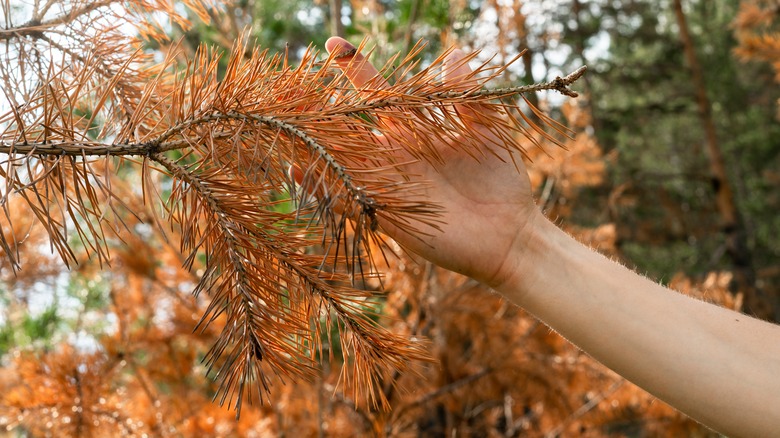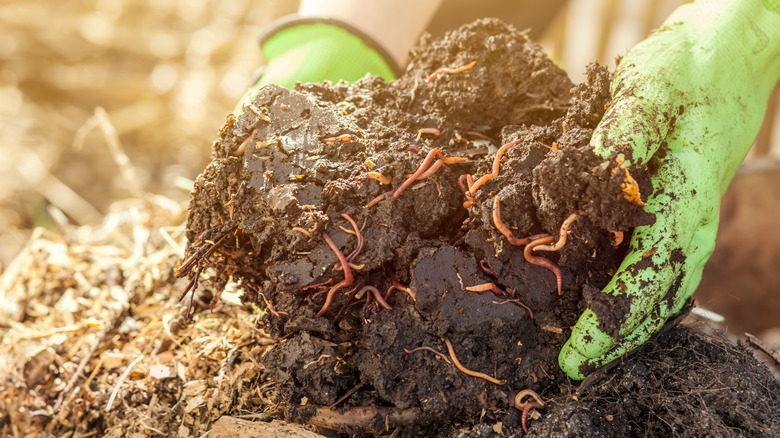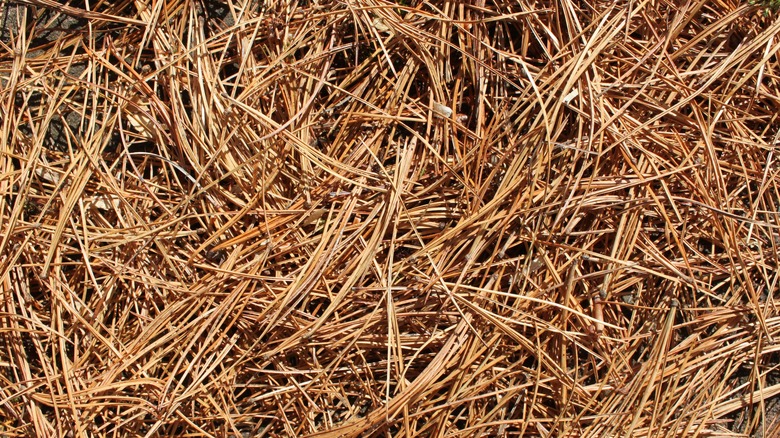Can You Add Pine Needles To Your Compost Pile?
If you have pine trees, you know how often they shed their needles. As the trees age, their needles turn brown and fall off, replaced by new ones that can provide adequate nourishment. But what should you do with all those dried needles? Can you rake them up and reuse them somewhere else on your property, perhaps by adding them to your compost pile?
You may have heard that pine needles are too acidic to use when making your own DIY compost. However, this is not entirely true. Yes — if you use a lot of pine needles in your garden's compost, you could increase the acidity of the soil. This can reduce plant production and cause issues for root development. Acidic soil tends to have fewer available nutrients, too. But although pine needles are acidic, they gain a more neutral pH as they break down, and when they're mixed with other types of organic matter, their acidity becomes less of an issue. Just don't use them exclusively in your compost to fertilize your lawn or garden or they will cause issues.
What to remember when using pine needles in your compost
To avoid introducing too much acidity into your compost pile, keep the volume of pine needles at about 10% of the total amount of materials you're using. Most plants do well in soil with a neutral pH — 7 — so make sure your compost's pH is near this number. Pine needles that fall have a pH of around 3.5, but they tend to gain a more neutral pH as they dry out, making them fine to use in small quantities in a compost pile. It's also important to be wary of where you source pine needles from. Don't collect them from areas near roadways — they could contain pollutants such as heavy metals. Stick to raking them up from your yard or from areas that don't have exposure to pet waste and chemicals.
One final thing to remember regarding using pine needles in compost is that they break down slowly because of their naturally waxy coating. You may want to use them as mulch for a season or two before adding them to the compost pile — this gives them some time to age and helps them to break down faster inside the compost material.
Benefits of using pine needles in your compost pile
Although you need to be cautious about incorporating pine needles into your compost, there are some benefits to using them. One of the biggest is that they're free to use. Just rake them up from under your trees as they drop off naturally and add them to your compost. Additionally, removing them from the top of the grass in your lawn helps to keep the grass healthier. This is because needles block sunlight and water from reaching the grass, potentially matting it down.
Pine needles also add some variety to your average compost pile. If yours consists mostly of green plants that are damp, adding brown pine needles can help to balance the mixture of moisture in the materials. They also provide nutrients — carbon and nitrogen — that are beneficial for all kinds of plants. Finally, reusing organic material is environmentally friendly. Yard trimmings represent about ⅛ of the materials that end up as municipal solid waste, so using pine needles in a compost pile is one way to reduce this number.


